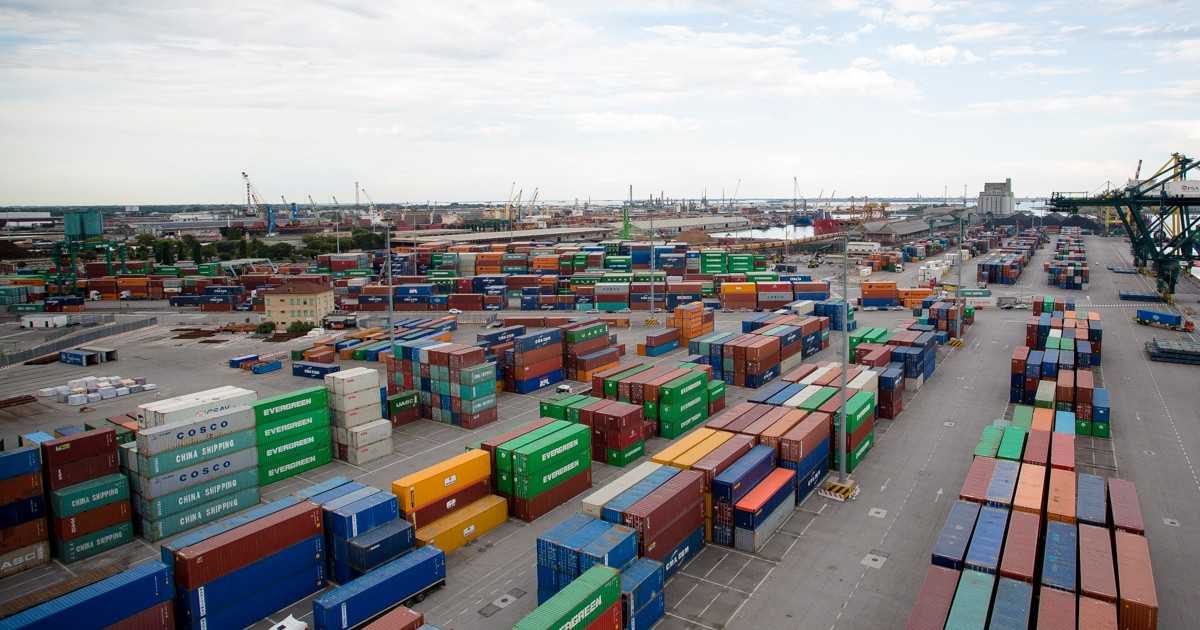The Msc Mediterranean Shipping Cothe world‘s largest container shipping company, will stop using the Suez passage after an attack on one of his ships. The decision, explains the Bbc who broke the news, was taken after the container ship on Friday 15 December Msc Palatium III had been attacked while passing through Red Seareporting damage but no injuries.
MSC ships are now being diverted through the Cape of Good Hopethe extreme south ofAfrica. Following the increase in attacks by Yemeni Houthis who announced that they were targeting foreign ships with their drones and rockets, the same decision had been taken by the French Cma Cgmthe Danish one Maersk and the German Table-Llyod. The Houthis also launch drones and missiles at Israel. The Americans announced on Saturday that one of their naval units shot down 14 drones. The MSC has denounced that the situation in the region is becoming “serious”. And in fact now 4 of the 5 largest shipping companies in the world have diverted the routes due to the Houthi attacks.
The new route around the Cape of Good Hope will lead to “a extend the journey by 7-10 days“, according to the calculations of the platform specialized Flexport for which “this will impact vessels transporting goods from Asia to Europe and the East Coast of the United States”. However, Flexport underlines that it is “still early” to measure the impact on international trade from a blockage of a vital artery such as the Suez Canal. But several shipowners have already applied to amortize the costs surcharges of hundreds of dollars per containerwith additional supplements for boats to and from Israel.
“We know that the condition of war is a condition that harms us for a long time. Soon the result of the attacks on ships that are passing through the Red Sea, and which have begun to no longer pass through there, will arrive in our homes. And if an Italian ship can no longer pass through Suez, and must circumnavigate Africa to bring products, do you know what this means for Italy and our trade?”, commented the Minister of Defense, Guido Crosetto.
The Houthis say their attacks aim to end the pounding air and ground offensive Israeli war against the Gaza Strip as part of the country’s war against Hamas. Since the beginning of the conflict in Gaza, the Houthis (whom Iran is accused of supporting) have often launched missiles and drones in the direction of Israel. They also threatened to prevent ships bound for Israel from passing through the Red Sea. However, ties to ships targeted by rebel assaults have become more tenuous as the attacks have continued.
On Friday a cargo ship from the company owned by Hapag-Lloyd flying the flag of Liberia was attacked and damaged. A spokesperson for the company confirmed this to the German agency Dpa, specifying that there were no consequences for the crew of the container ship. al-Jasrah. The ship was passing through the Suez Canal from Greece and headed to Singapore when she ended up in the crosshairs. According to press reports, a fire broke out on board, but the merchant vessel managed to continue its route. The Yemeni Houthis claimed responsibility – through spokesperson Yahya Sarèe – for “two operations against two cargo ships”, which they believe were headed to Israel.
On Thursday 13 December the Yemeni government threatened a maritime siege on Israel starting from the Red Sea and the Strait of Bab al Mandab, where almost half of the world‘s sea traffic passes and which connects the Mediterranean with the Horn of Africa. This while near the other maritime bottleneck crucial for energy balances, the Strait of Hormuz, an obligatory passage between the Gulf and the Indian Ocean, a cargo ship was alongside for more than an hour off the coast of Oman five unidentified warships which, according to some media, were responding to orders from Iran.
